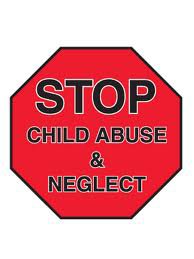There are no prerequisite courses for becoming a parent and children don’t come with instructions. Child abuse affects families of all ages, races, ethnicities, and social classes. The week of June 6-12, 182, the U.S. Senate and House of Representatives resolved should be designated as the first National Child Abuse Prevention Week. Members of Congress requested the President issue a proclamation calling upon Government agencies and the public to observe the week with appropriate programs, ceremonies, and activities promoting the prevention of child abuse and neglect. In 1983, April was proclaimed the first National Child Abuse Prevention Month. As a result, child abuse and neglect awareness activities are promoted across the country during April of each year. Earlier this week President Barack Obama issued a Presidential Proclamation declaring April 2012 as National Child Abuse Prevention Month. The official White House Press Release states that “During National Child Abuse Prevention Month, we renew our commitment to break the cycle of violence, strengthen support for all who have been affected, and empower our young people with the best we have to offer.”
“If we don’t stand up for children, then we don’t stand for much.” –Marian Wright Edelman
Prevention is the best weapon for eliminating child abuse and neglect and improving the lives of children and families. Keeping children safe is everyone’s responsibility. There is no one size fits all approach to supporting families and keeping children safe from abuse, neglect, and abandonment. Raising awareness for the need for child abuse prevention requires engaging families before a crisis occurs. Research shows that successful child abuse interventions both reduce risk factors and promote protective factors or conditions that increase the health and well-being of children and families. For example, I am a proponent of promoting positive parenting skills which includes an understanding of healthy child development in addition to connecting parents with valuable community resources (financial, academic, employment, health, etc).
Together we can stop child abuse. Here are 3 things you can do today:
- Find out what constitutes child abuse in your home state. (educate yourself)
- Find out where to report child abuse in your home state. (if you see something, say something)
- Volunteer to mentor a child or a family.

Nicki Sanders, MSW, Chief Visionary Officer
The Teen Toolbox provides youth portfolio development and civic engagement and academic enrichment opportunities to help teens set goals for life after high school and create a road map to reach those goals through its PACKAGED FOR SUCCESS™ Programs.
